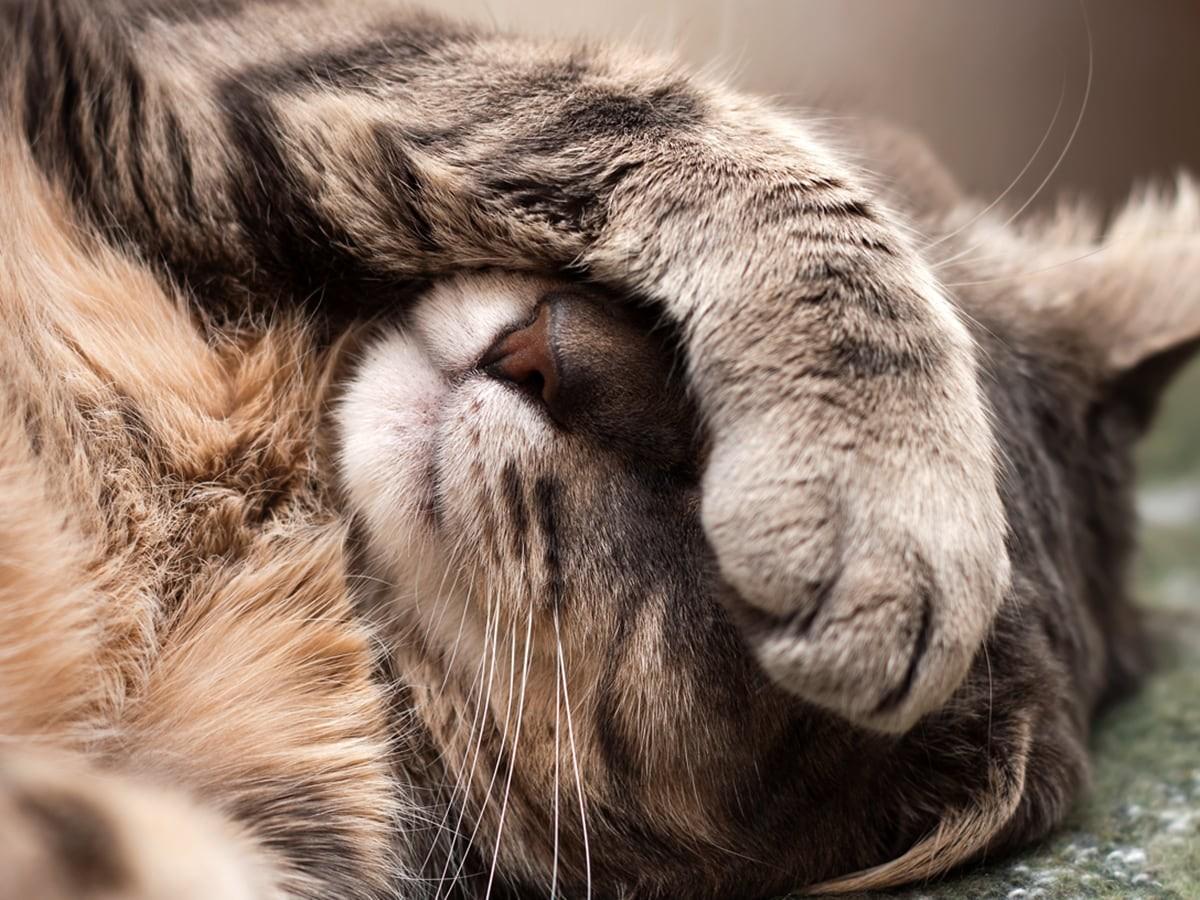Although it may seem strange to think of your cat as a predator rather than a cute kitty, they were once predators in nature. As predators, any sign of weakness would put them at an increased risk of other animals after attacking them.
This leads us to today, where our cats will often mask their illness instinctively, making it difficult for us as cat parents to figure out when our precious cat may be ill.
Today, we’re breaking down the most common signs of illness in cats to help you keep a close eye on even the most subtle signs that your cat is ill.
Signs Your Cat Is Sick
Behavioral Changes
Is your usually playful cat now anxious? Or your high-energy kitten now tired and lethargic?
As cat parents, we know our cats best. If you notice any changes in personality or behavior, reach out to your veterinarian about your concerns. With cat insurance coverage, you can be reimbursed the cost of a vet visit for your feline’s illness.
Changes in Litter Box Habits
Another sign to watch out for is sudden trouble using the litter box. An ill cat may stop using the litter box altogether, struggle to urinate or begin urinating more frequently.
Constipation and diarrhea may be a warning sign of a more significant problem. Diarrhea is usually easy to identify in a litter box, but constipation can prove more difficult. Look for small, dry stools for signs of constipation. Constipation can be an early indicator of kidney disease. You may also notice your cat excessively licking their genitals as a sign of discomfort, usually resulting from a urinary tract problem.
An inability to urinate is considered a life-threatening emergency and is particularly common in males. If you notice your cat struggling to urinate, immediately contact your veterinarian.
Sudden Weight Loss or Weight Gain
Just like humans, cats who suddenly lose weight or gain weight may be suffering from an illness. If your cat quickly gains or loses weight, please contact your veterinarian immediately, as this may be a sign they are sick.
In cats with chronic illnesses, weight loss may be more subtle but noticeable when you run your hands on their spine and ribs. Your veterinarian can help you spot more subtle weight changes by tracking your cat’s weight at regular veterinarian visits.
Grooming Changes
Most cats are neat, consistent groomers. If you notice your cat’s fur is suddenly being neglected, this is a sign of fatigue and possible illness. Look for signs of matted, tangled, dull, or oily fur.
On the other hand, overgrooming can also be a sign of sickness. Look for bald spots, irritated skin, or clumps of fur falling out. Overgrooming is frequently a sign of anxiety, allergic reactions, or skin problems.
Bad Breath and Gum Color
A healthy cat’s gums will be deep pink.
Pale gums can be an indication of shock, anemia, or poor circulation. Bright red gums can be a side effect of overheatedness, yellow gums a sign of jaundice, and bluish gums can indicate a lack of oxygen.
Sudden bad breath is another sign of illness. Your cat’s breath will never smell “good,” but it shouldn’t smell so foul that it turns your stomach. Bad breath is frequently a sign of tooth decay and gingivitis, both of which can lead to infections and heart issues.
If your cat’s breath or gums are off, contact your veterinarian for your next steps. To prevent tooth decay and gum disease in your pet, be sure to clean their teeth whenever possible.
What Do I Do If My Cat Is Sick?
We recommend immediately reaching out to your licensed veterinarian if you suspect your cat is ill. Time is precious when our loved ones are sick, and it’s better to be safe than sorry.

Creative manager by day, pet enthusiast all the time! After 19 years with my dog (hopefully he wins the award for oldest pet in the world), I enjoy spending my days brainstorming tail-wagging content, and sniffing out the latest trends in the pet world.
Old Dominion Animal Hospital
Veterinary Centers of America












